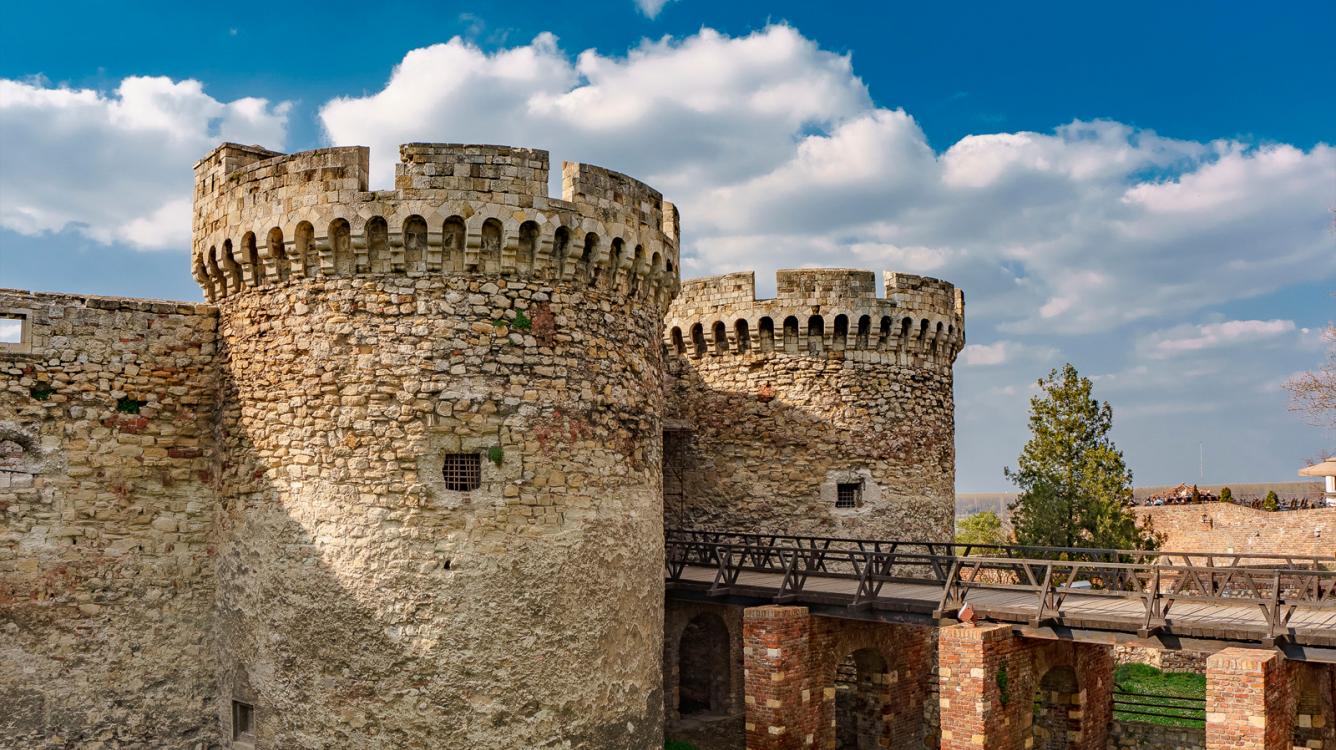
Can You Out-Solve The World's Best Solver?
Earlier this month GM Kacper Piorun won his 4th World Solving Championship in Belgrade, Serbia. The problems he had to solve were pretty tough, but you can give it a try!
Solving chess problems or studies can be a lot of fun. However, it can be serious business too. There's an official World Solving Championship, held annually by the World Federation for Chess Composition (WFCC).
This year the 40th edition took place August 2-3 in the Metropol Palace Hotel in Belgrade, Serbia.
Zindan Gate on Kalemegdan fortress in Belgrade. | Photo Wikipedia.
The competition took place in six sessions held over two days; different types of puzzles need to be solved in set time frames. Problem types included twomovers, threemovers, moremovers, endgame studies, helpmates, and selfmates. The players are scored based on their solutions and the time spent on them. As in golf, the lowest score at the end of the competition is proclaimed the winner.
It's a unique chess tournament; many specialists attend from all around the world. Besides Kacper Piorun, who also won in 2011, 2014 and 2015, winners in recent years have included Piotr Murdzia (also from Poland) who won in 2002, 2005, 2006, 2008, 2009, 2012, and 2013, and John Nunn (England), who won in 2004, 2007, and 2010. The latter always writes excellent reports on the championships for Chessbase. Find this year's here.
You can find all puzzles and solutions on the official website. Here are the direct links in PDF form: first day's puzzles and solutions, second day's puzzles and solutions.
Below are a few puzzles for you to solve. Here's the first one that the participants received on their plate: a mate in two. For anyone who has never done this before, all problems are White to move. Find the only move that forces a mate in two.
Here's a mate in three:
Here's a mate in four:
Here's an endgame study. White to move and win:
Here's a self-mate in two, meaning White, to move, forces Black to deliver checkmate within two moves even if Black tries to prevent it!
Piorun's victory is his third in a row, and his fourth in total. Piorun also happens to be Poland's third board in the upcoming Olympiad. Perhaps his solving will aid his play!
Murdzia, who won the championship a record seven times, finished second. Marjan Kovacevic came third. The team competition was won by Poland. That wasn't a surprise; the country has won every single year since 2008.

